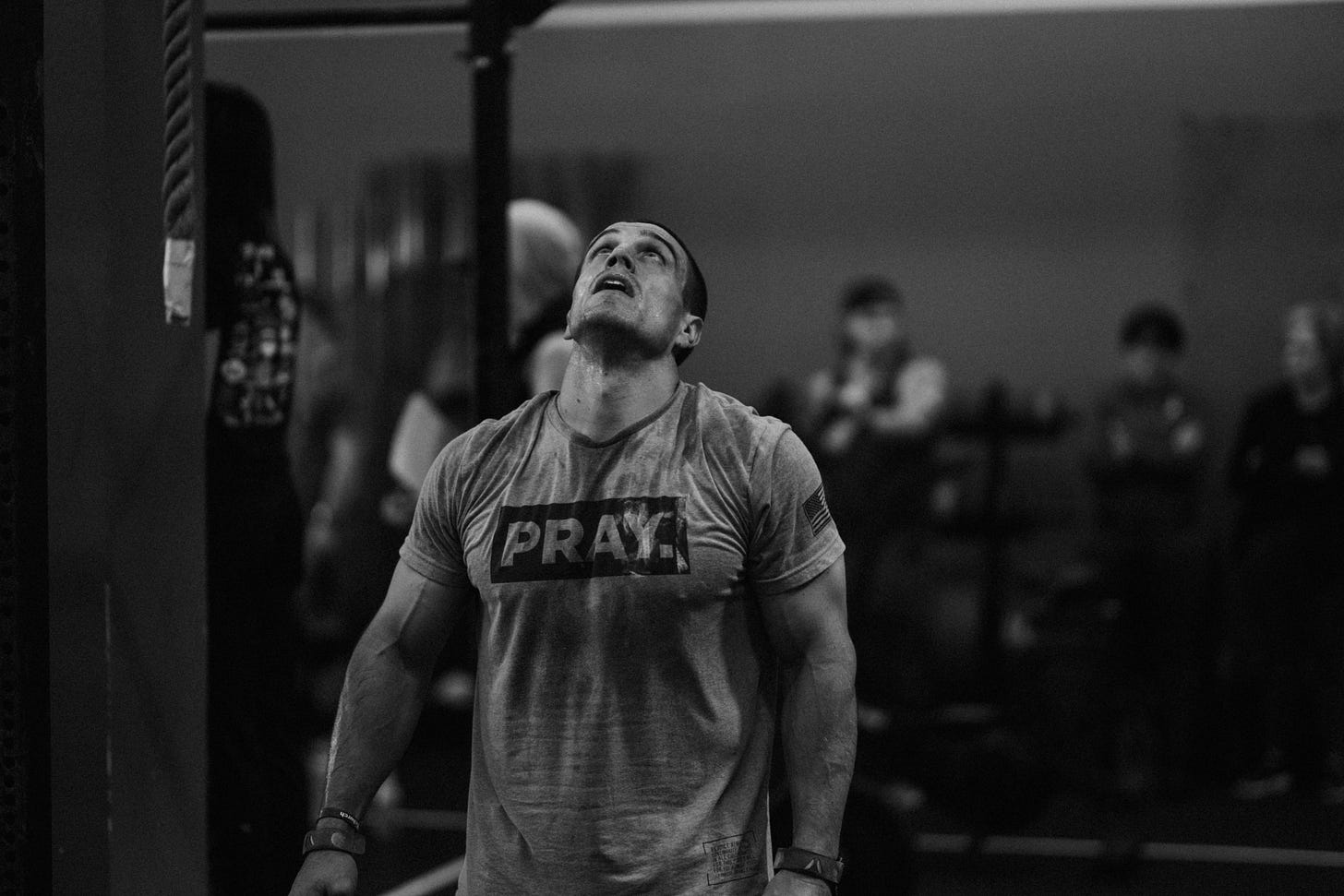“All or Nothing” Always Becomes Nothing: A Lesson in False Hope
The Hidden Cost of Big Promises and Fast Starts
Every January, gyms are filled to the rafters—parking lots jammed by 6 a.m., fresh-faced zealots swiping their new key fobs with a look in their eyes that says, This time, it’s for real.
You know the routine.
Some guy (or maybe it’s you) in a new Bodybuilding.com hoodie starts declaring:
“I’m going every single day. No exceptions.”
Another swears off every molecule of sugar.
One man proudly announces he’s doing intermittent fasting, carb-cycling, carnivore, weight training, jogging, sprinting, 8 hours of sleep, greens powders, and cold plunges—all in the same week.
It feels good, doesn’t it? That buzz of fresh commitment. Like you’ve finally decided to stop messing around and step into the version of yourself that’s been waiting on the sidelines.
And then real life rolls in—like it always does.
The kid with a fever who gives it to your other kids, then your wife, then you.
The client crisis that doubles your hours overnight.
The tweak in your lower back when you tried to deadlift 275 like you did “back in the day”.
Suddenly, the six-days-a-week plan that sounded so heroic becomes a millstone around your neck.
A week later, you’re eating drive-thru in your car, telling yourself you’ll “start over Monday.”
The Psychology Behind It
This pattern isn’t personal weakness. It’s a documented phenomenon called False Hope Syndrome, coined by psychologists Janet Polivy and C. Peter Herman.
Here’s how it works:
You set goals that are big, loud, and often unrealistic—because that’s how you think you’ll guarantee change.
You get a surge of dopamine and momentum simply by making the declaration.
But when life applies pressure, the new behaviors can’t hold up—because they’re too extreme to integrate into a real schedule.
The disappointment doesn’t just feel like a slip. It feels like proof you’re a chronic failure.
Instead of adjusting the approach, you blame your own character, your discipline, your willpower.
This is why so many men keep living the same January over and over. The goals are different, the apps are new, but the outcome is identical.
False Hope Syndrome feeds on the illusion that more effort is always the answer.
It’s not.
A Better Way
Let’s zoom out from the shame spiral and look at the evidence.
Dr. Michelle Segar, who has spent decades studying how humans actually stick to health behaviors, found that moderate, enjoyable routines outperform extreme plans over the long haul. In her research, people who built fitness into their daily life in small, flexible ways were far more likely to keep going months later.
Think about that:
A 20-minute walk, done consistently, beats a 90-minute grind you abandon after two weeks.
And I bet when you read that sentence, you’re like “Duh, what man in his right mind would think 2 weeks of intensity beats decades of consistency?”
But then you keep doing this cycle over and over…
But this isn’t just about exercise. The same principle shows up in business, marriage, and skill mastery.
As I’ve spent years immersed in high-performance psychology, I’ve started to call this idea Minimum Viable Consistency. It’s the smallest, reliable version of a habit that:
You can execute under stress.
You can repeat when motivation is low.
You can track without elaborate systems.
It’s not sexy, but it works.
What This Means for Real Men—and Real Lives
Here’s the uncomfortable truth: peak performance isn’t built on peak effort.
It’s built on reliable follow-through and focus.
If you look behind the curtain of elite performers—CEOs, pro athletes, special operations veterans—you won’t find them running at 110% all year. You’ll see them:
Nailing the basics every week.
Creating rituals that remove decision fatigue.
Adjusting intensity based on the season.
Obsessing over recovery as much as output.
Lebron James sleeps something like 12 hours per day and follows the same recovery programming whether he played for minutes or for hours in the last game.
All-or-nothing thinking is performance theater.
Minimum effective dose is performance reality.
Instead of asking yourself what you can do when you’re fresh and motivated, ask:
What can I keep doing when I’m exhausted and under pressure?
Because that’s the test that matters. Anyone can be disciplined on a perfect day. It’s who you are on a bad day that determines your real trajectory.
The Minimum Effective Dose
Here’s the phrase to tattoo on your brain:
Something consistent beats everything inconsistent.
One of the worst habits I see in high-achieving men is overcomplicating their systems. They’ll build elaborate spreadsheets, automate reminders, and design 90-day challenges—then burn out in week two.
Meanwhile, the man who decides he’ll walk around the block every evening no matter what, as his anchor rhythm? He’s 50 pounds lighter a year later.
Small doesn’t mean weak. Small means durable.
When your plans survive the bad days, you can finally stack enough repetitions to create transformation.
Once you have something hard-wired into your being, you can expand it, add to it, or bring in more intensity - but don’t start there. It’s a recipe for “nothing”.
-Chris



Great read and very relevant to me right now. Thank you for sharing.